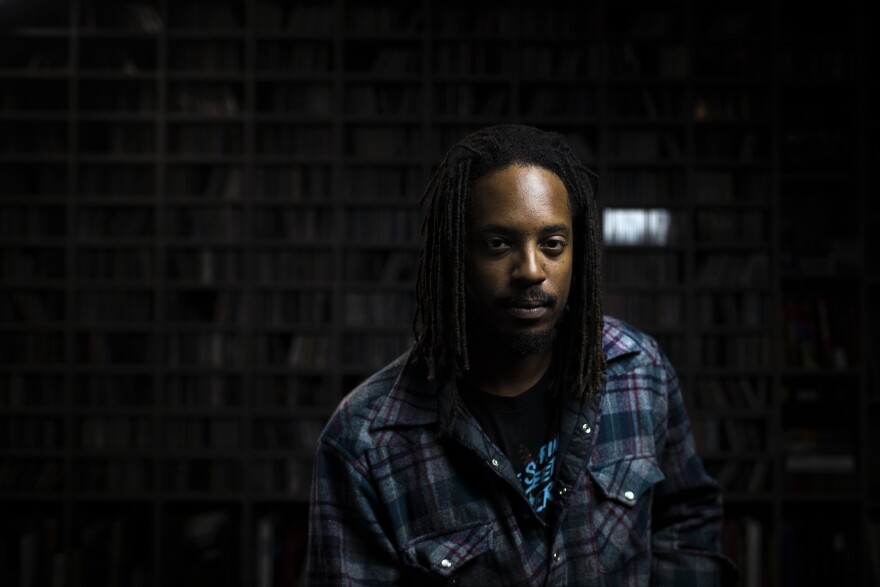From Texas Standard:
Ten years ago, Joe Lewis – a 20-something from the Austin suburbs – first tried to storm the stage. By day, he was delivering fish for a local seafood restaurant; by night, he was putting his unique spin on the blues that Austin was best known for. With a sound that evokes Stax and Muscle Shoals more than the cosmic cowboys, Lewis stands out in Austin.
After a decade of playing the usual clubs and honing his sound into an infectious funk soul with a punk attitude, some think that this may be the moment for Black Joe Lewis & the Honeybears. His just-released album “Backlash” has received lots of love from NPR Music and has been featured in media outlets across the country.
Lewis is a self-taught musician who learned to play guitar to stave off boredom while working at a pawn shop as a teenager. He slowly built his confidence as a musician and songwriter, spending evenings at Austin’s eclectic dive bars and watering holes.
He tells Texas Standard how Austin – a city not known for a large African-American population – gave his playing “a little direction” and shaped him into the musician he is today.
On the name “Black Joe Lewis”:
“You definitely bring on some conflict taking on that name. Me and my friend were like, ‘there are no black people playing blues in Austin, so let’s do it and let’s just screw with everybody.’ And things just took off, so I was like, ‘I guess that’s my name.’”
On comparisons to James Brown:
“I don’t know who I would like to be compared to. I try to be my own thing. I definitely have my influences, and James definitely would be one, and Hendrix. I like Nile Rodgers a lot. I love a lot of ‘70s punk rock… I love The Isley Brothers – they’re relevant every era.”
On how Spoon’s Jim Eno produced his first album:
“We got a call to open up for [Spoon] at Mohawk and then we got offered to go do six or seven days with them on the West Coast and that was our first tour.”
On political influences in his songwriting:
“I got nature’s natural instructions [with] the whole police shooting black people and black on black crime. The last song on the album is called ‘Maroon’ and that’s about maroon societies back in the Americas [of] slaves that had escaped and made communities within these jungles where they were able to hide out. They were more prevalent in South America and the Caribbean. These people would cook their food under the ground since it was harder for the English dudes’ dogs to sniff them out… and they would go in and raid the towns at night and take off. I’m all about the little guy versus the big guy.”
Written by Molly Smith.


